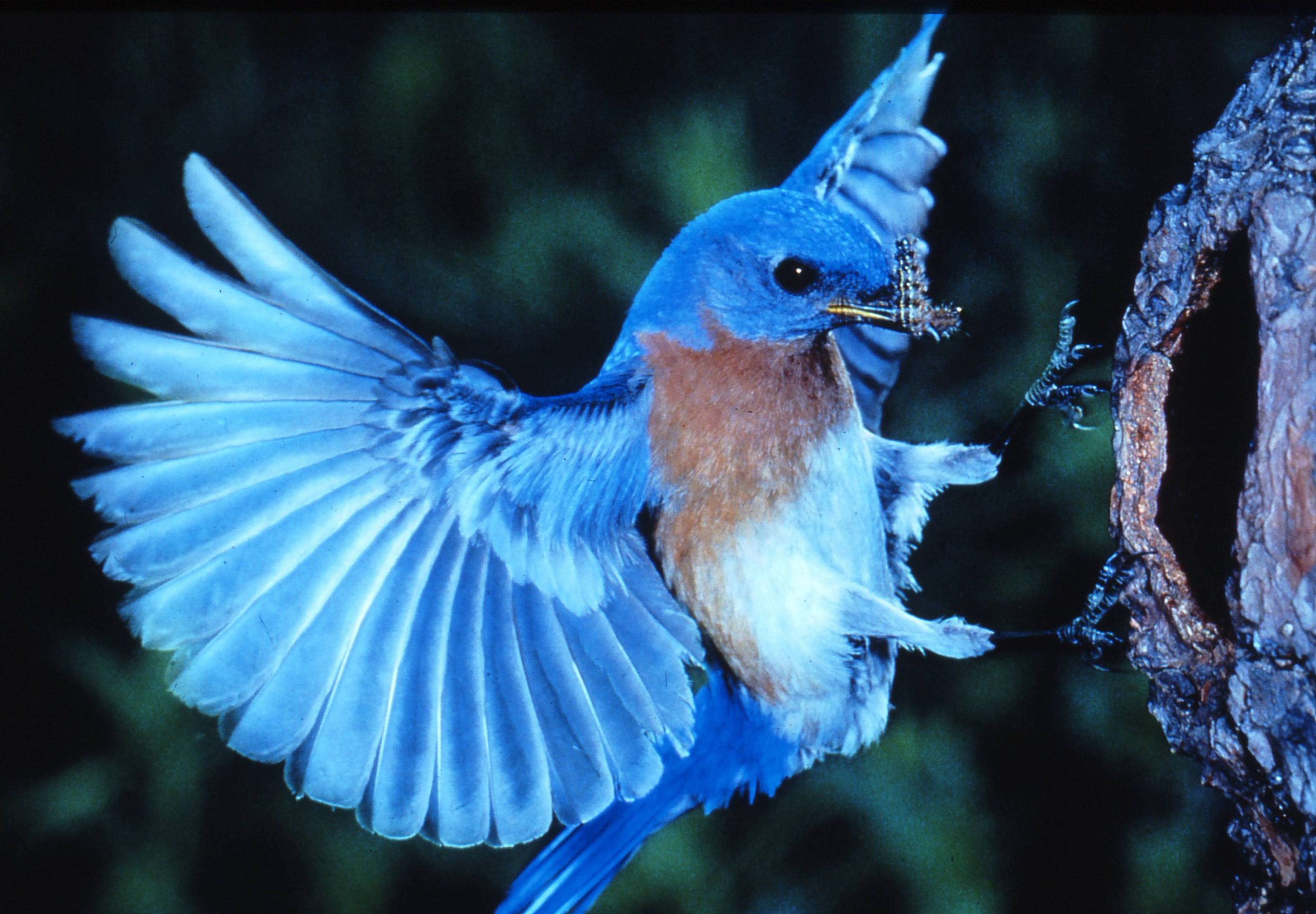Spring is arriving. So are the migratory birds who have spent the winter in warmer climes. Over millennia, birds have evolved to arrive when the insects emerge. 96% of bird species need insects to feed their nestlings. Even seed-eating birds will feed insects to their babies.
There is a problem looming: insect populations are declining due to climate change, pesticide use, human development, and habitat loss—including invasive species intrusion. Non-native plants are not good supporters of our native insects. Some non-natives which have brought few or none of the insects and pathogens that curb their growth in their native habitat, are now out-competing the native plants.
You can help by gardening for birds which really means gardening for insects. Provide food, water, and shelter or space.
Food: Replace invasives with native plants that have overlapping bloom times that host native insects. Broad plant diversity will mean a wide variety of insects attracting a wide variety of birds. Pollinators prefer flowers in clumps rather than one here and there.
If you want birds, do not use pesticides! Do not buy plants grown from pesticide-infused seed because all parts of the plant will be toxic to insects. Buy organically-grown plants to support organic growers.
Water: It can be as easy as an upside-down garbage can lid filled with water and nestled on a rock wall. Clean your bird bath every three days. More complicated but fun is a garden pond with a fountain or waterfall. Birds are attracted to the sound of water. Add a few fish and tadpoles to your pond to eat mosquito larvae.
Shelter or space: A variety of spacing and layering of plantings, from tall trees, shorter trees, shrubs, meadow, and garden will provide lots of nooks and crannies for a variety of critters to nest, eat, and take shelter. Keep dead or dying trees to provide cavity-nesting opportunities and increased insect supply. A brush pile will provide shelter in bad weather.
Lawns are great for badminton and croquet players, but only the occasional robin. They cost money, time, and fossil fuels to maintain. If you have a large lawn, convert some to meadow. The Insects and birds will soon flock to it. If the neighbors complain, put up a “Conservation Area” sign.
Especially in these difficult times, gardening can be therapeutic, joyful, and educational for you and your family. Thank you for helping the birds.
#
Author: Katharine Dodge is an artist, and a long-time naturalist and environmental educator with the Northeast Pa. Audubon Society. For more information about Audubon and its programs, visit their website: nepaaudobn.org or call them at 570-253-9250.


